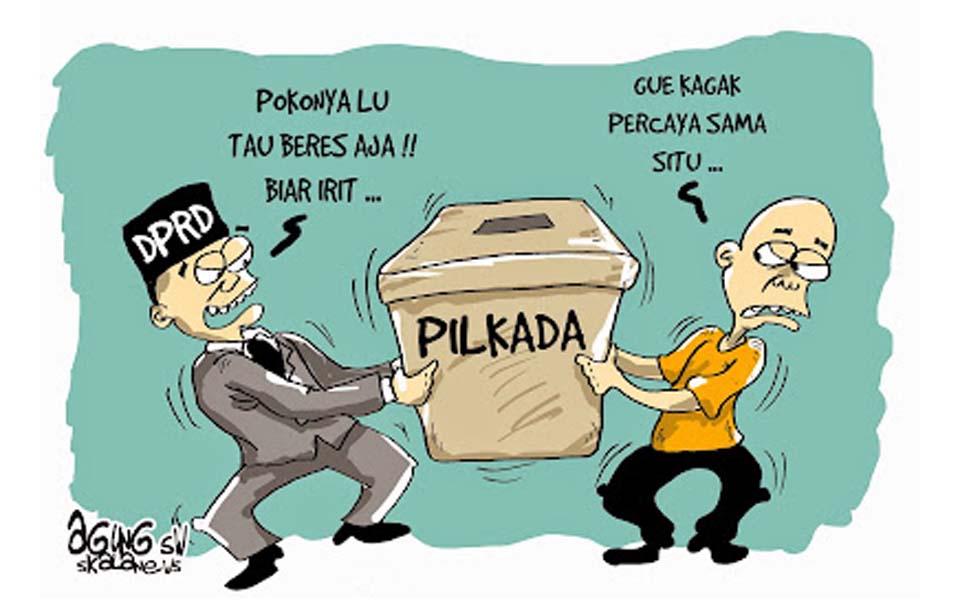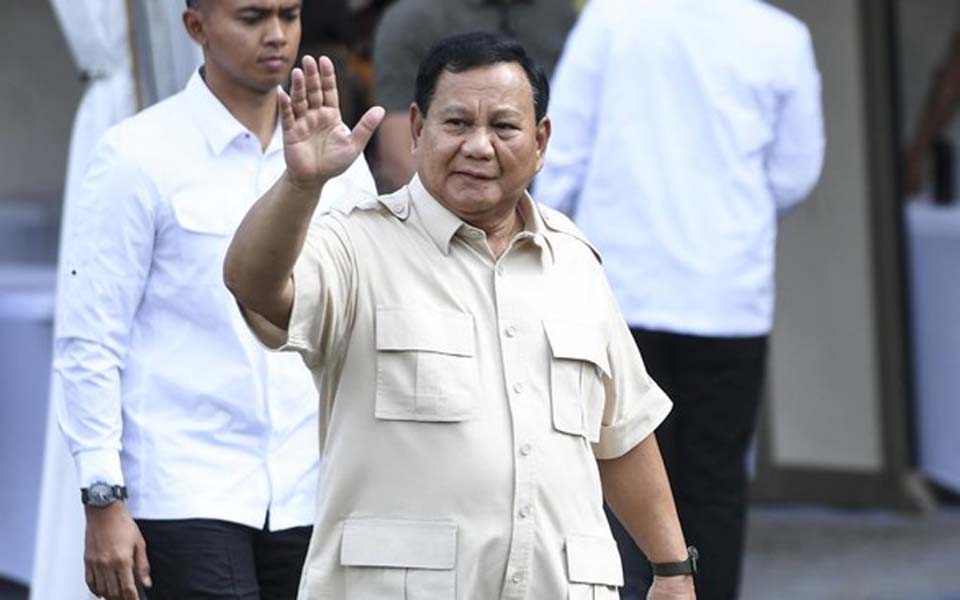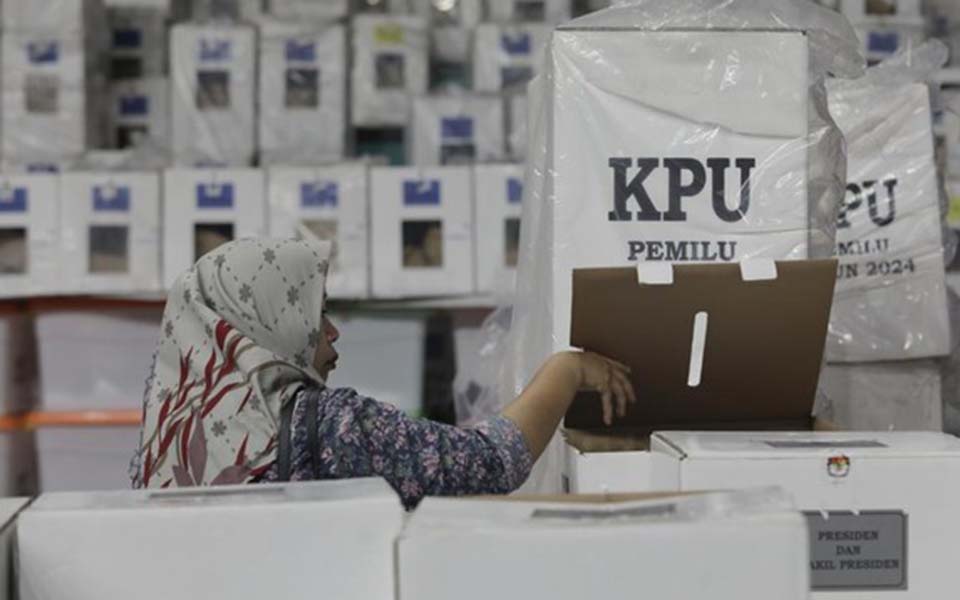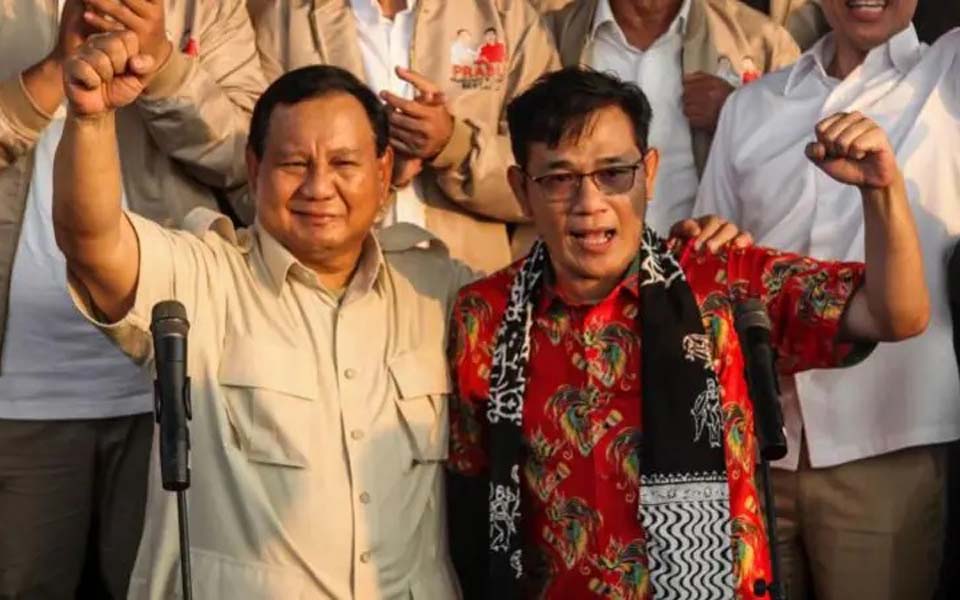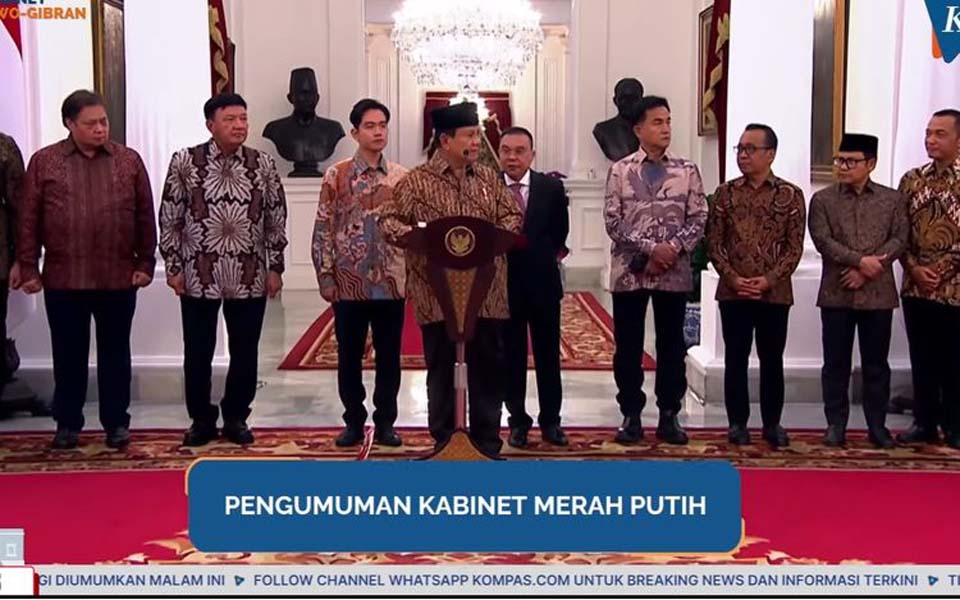During the era of Suharto’s New Order regime, People’s Democratic Party (PRD) activists were very popular. The socialist based organisation was known as a group of young people who resisted Suharto. During the era of reformasi however, they have been unable to find a place for themselves and remain unpopular.
The 1999 general elections were test case for the PRD. As it turned out they failed to garner the 2 percent of the vote required to survive. Since then, the PRD’s – which was so popular in the eyes of students devoted to socialism – has gradually dropped out of sight.
In the lead up to the 2009 legislative and presidential elections, they tried to reincarnate themselves with the name Papernas (National Liberation Party of Unity). But, they failed to register themselves with the General Elections Commission. So, where are these prominent party figures that were known as militants during the era of the New Order?
Although they are not taking part in the elections, a number current and former PRD cadre have chosen their own roads to get into parliament. Former PRD leader and the founder of the socialist orientated party, Budiman Sudation, joined the Indonesian Democratic Party of Struggle (PDI-P). Former PRD general chairperson Yusuf Lakaseng now sits as one of the central board of directors with the Star Reform Party (PBR). Former PRD general secretary Faisol Reza meanwhile picked the National Awakening Party (PKB) as his political vehicle. Just recently Papernas general chairperson Dita Indah Sari also decided to join Lakaseng in the PBR.
The political faucet, which was opened wide after the fall of the Suharto regime, gave birth to a multi-party political system. It is this situation that was one of the reasons that these movement activists changed their political direction to one that was more practical. “The parliament must be filled with people who are sincere and clean,” said Lakaseng when contacted by the Indo Post last night.
Lakaseng has come forward as one of the PBR’s legislative candidates for the Central Sulawesi electoral district. The man born in the Parigi Moutong regency says that there are several factors that will be advantageous to his candidacy. This includes the fact that there are still no people’s representatives from the regency where he was born. “I have been developing potential voters for the last two years now”, he added.
Lakaseng denies that there are basic ideological differences between the PRD and the PBR, which is ipso facto an Islamic party. According to Lakaseng, the PBR has a socialist-religious base. In addition to this, under the leadership of PBR general chairperson Bursah Zarnubi, the PBR has provided extensive opportunities to young people. “Young people like me have been given the opportunity to become members of the central board of directors,” he said.
Another PRD activist who has joined and an established political party is Aan Rusdianto (34). A victim of the 1998 abductions of student activities, he chose the PKB as his political vehicle. The man born in Ciamis, West Java, and drop out from the University of Diponegoro says that his reason for joining the PKB was because of Nursyahbani Katjasungkana, an activist and PKB legislator known as a defender of women’s rights. But, soon after the grassroots membership based party split, she was dismissed from her position as the deputy secretary of the Jakarta Special Province regional leadership board.
As an “alumni of the 1998 abductions”, said Rusdianto, he is not alone in the PKB. There are also other victims of the abductions such as former PRD leader Faisol Reza. In an email sent to the Indo Post (the Java Post Group) last week, he claimed that he is still a member of the PKB’s board of directors in Parung (Bogor). Earlier, news reports appeared saying that Reza had joined the Gerindra Party (Great Indonesia Movement Party, established former army special forces chief Prabowo Subianto). “It is not true that I have joined the Gerindra Party”, he wrote.
But, why then did Dita Sari choose to join the PBR, an Islamic based party? Sari does not have a problem with this, because many of the PBR’s programs are in accord with her idealism. Among others this includes economic self-sufficiency that is not dependent upon foreigners, the option of abolishing the foreign debt and economic development in rural areas as a priority.
Sudjatmiko, who has not been active with the PRD since 2001, said that the spirit of reform in a democratic framework still requires parties as political vehicles. “Idealistic struggles cannot be carried out from outside the fence,” he asserted.
Like Sari and Lakaseng with the PBR, or Reza joining the PKB, Sudjatmiko also has a justification for joining the PDI-P. “The PDI-P is taking up the issues of nationalism, pluralism and populism, it seemed, to be closest to my vision”, he said. (cak/nas/pri/tof)
[Translated by James Balowski.]











